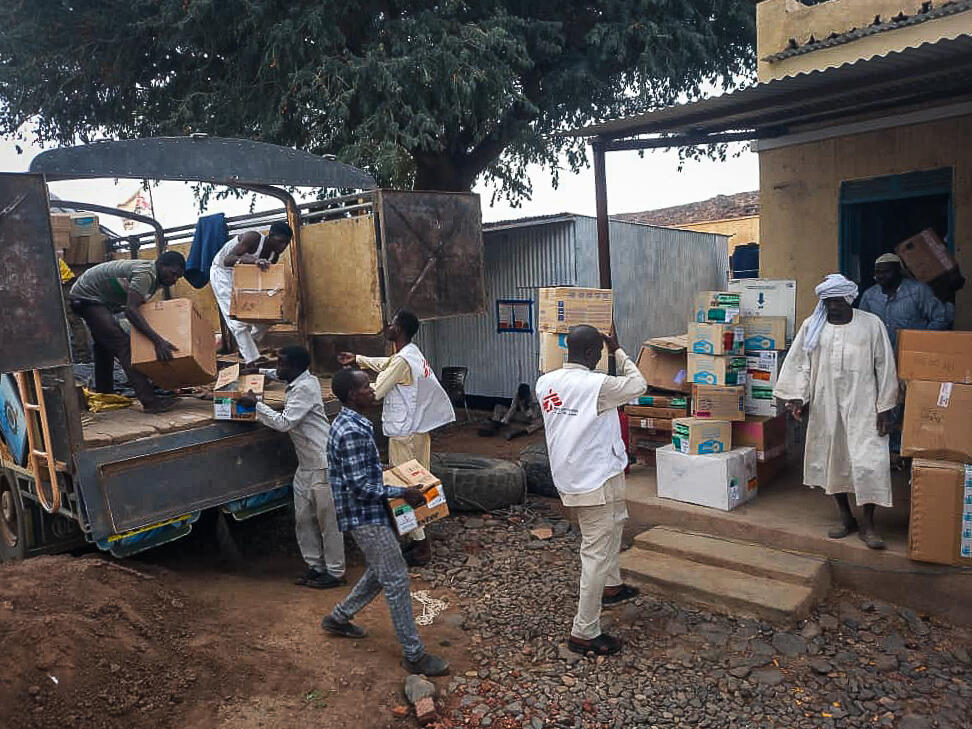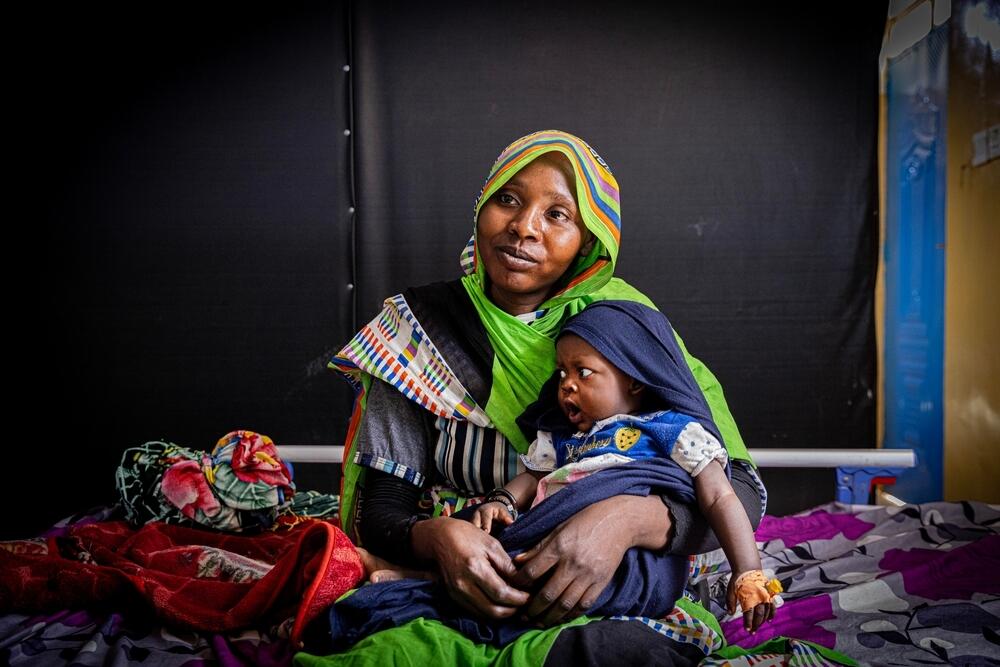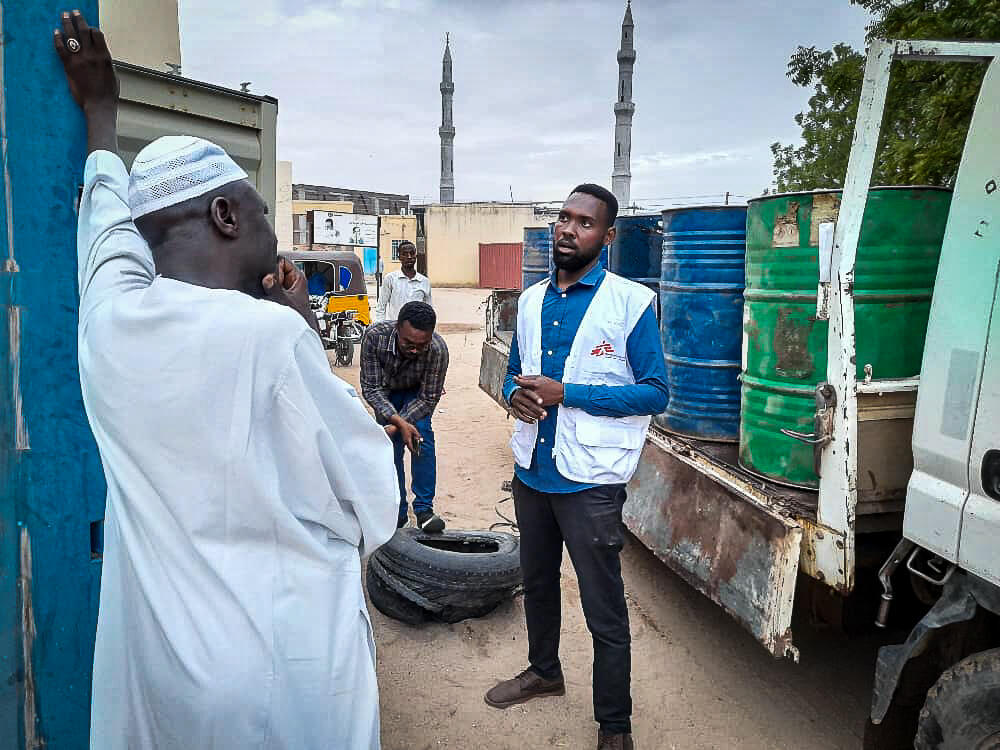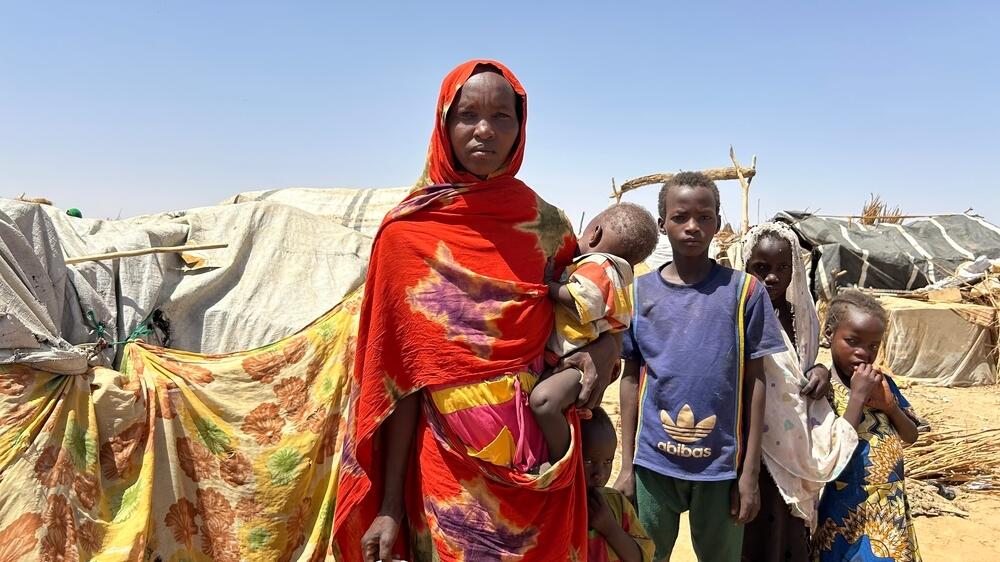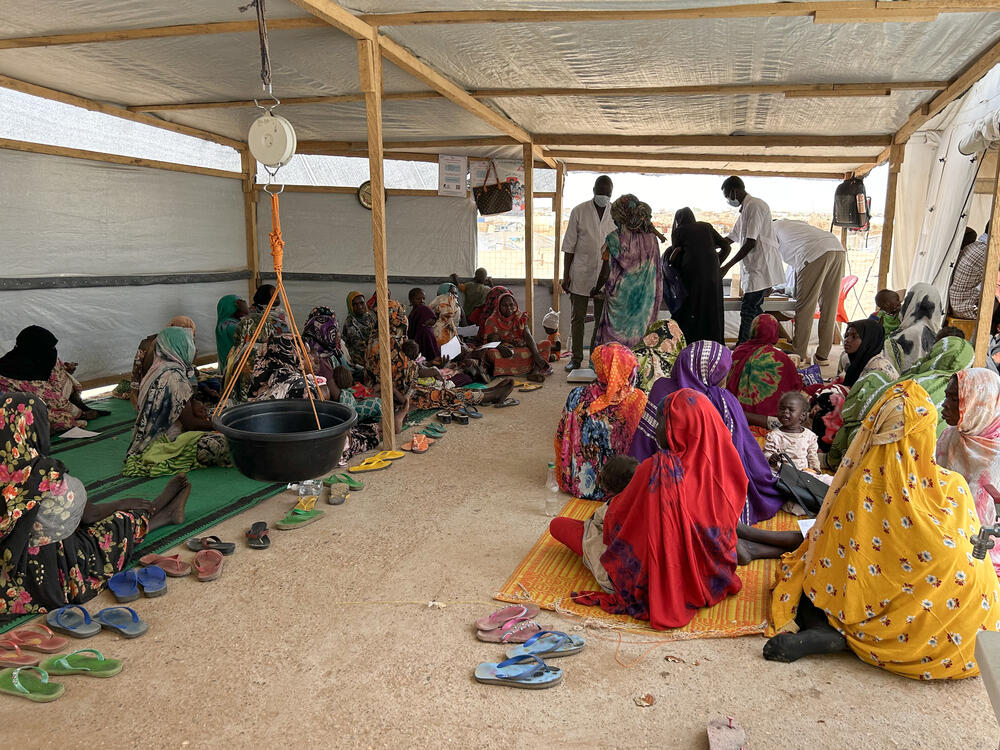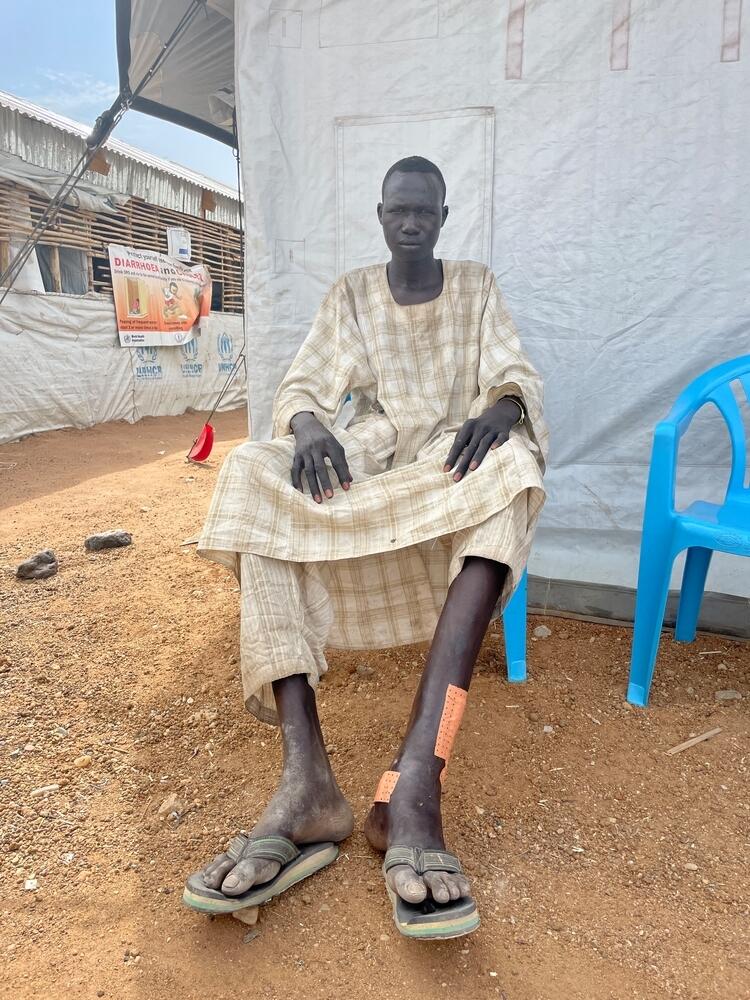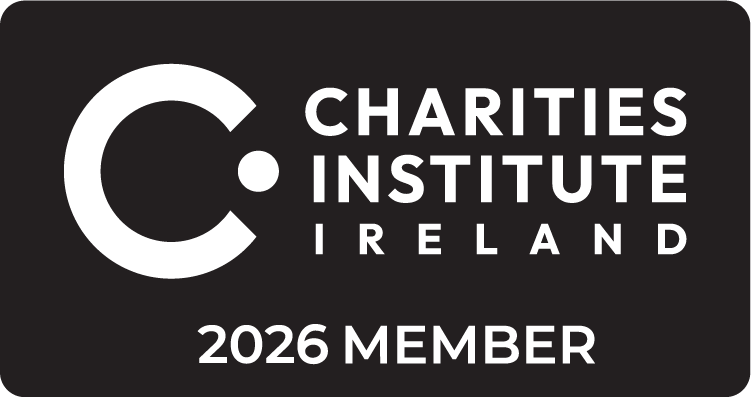Sudan: Patient voices after one year of war
1 May 2024
For nearly a year, brutal war between the Sudanese Armed Forces (SAF) and the paramilitary group Rapid Support Forces (RSF) has ravaged Sudan, forcing millions of people to leave their homes to escape the fighting and leaving countless civilians dead and severely injured. Airstrikes, drone strikes and heavy weapons, including tanks, have destroyed markets, infrastructure, crucial buildings – including healthcare facilities – and residential neighbourhoods.
MSF currently works in and supports more than 30 health facilities in 10 states in Sudan: Khartoum, Al Jazirah, White and Blue Nile, Al Gedaref, West Darfur, North, South and Central Darfur, and Red Sea. Our teams have also recently intervened in Kassala. We run activities in both SAF and RSF-controlled areas. We provide trauma care, maternal care and treat malnutrition alongside other healthcare services. The humanitarian needs across the country are massive and largely unmet.
The following MSF patient testimonies outline the difficulties faced by people affected by the brutal war in Sudan since April 2023.
Patient testimony from Central Darfur, Sudan:
“We suffered a lot. For three days, we couldn't sleep. Now, where we are is also bad”
I’m Khadija Mohammad, 25, and this is my daughter Malaka, I have been displaced by the war in Sudan. Five months ago, I was forced to flee my home in the displaced camp of Hasahissa, in Zalingei, Central Darfur, Sudan. I sought refuge in the displaced camp of Tululu, approximately one hour away from her home.
When the problems started between SAF and RSF, I lived at the edge of the [Hasahissa] camp which is close to a military base. The militia would come into our homes and loot our belongings.
During the fighting, there was no access to health care or food in the camp. I sold my belongings to earn some money for food. Eventually, the security situation became too difficult, and I was forced to move to Tululu camp, one hour away. We suffered a lot. For three days, we couldn't sleep [in Hasahissa camp]. Now, where we are is also bad, because we don´t have enough food.
In Tululu camp, we don´t have access to health care me and my family. I traveled over an hour to Zalingei teaching hospital to receive treatment for my child Malaki, who tested positive for malaria at the hospital. In Hasahissa camp [previous home], we would receive medication for free. Here in Zalingei, it´s not the same. But today [for the first time], we received medication for free.
MSF teams are supporting the Zalingei teaching hospital. On the 2nd of April, the hospital opened the newly refurbished emergency department, where MSF teams support the Ministry of Health staff with incentives, training and rehabilitation of the facility.
Patient testimony from Adre, Chad:
“Life is very hard here. But what worries me the most is the children. I can’t provide for them, even to find shoes”
Four months ago, Khartouma found refuge in Adré, Eastern Chad, after fleeing extreme violence and clashes in her village of Ardamata, in West Darfur, Sudan. With her six children, aged from 9 months to 15 years, she is still struggling to live in the transit refugees’ site of Adré, with very limited access to basic essential services. Since the outbreak of the conflict, 550, 000 Sudanese refugees fled to Eastern Chad and continue to live in dire conditions, desperately lacking food, water, and decent sanitation.
“When armed clashes and bombings came close to my village, I had no other choice than to leave. We fled with a group of people but some of them did not make it to the border. With my neighbors, we fled by car and took as much luggage as possible. But along way, there have been attacks, people have been killed. We were looted by armed men but us, we were lucky, they took only our belongings and not our lives.
We arrived late at night and empty-handed at the border. The next day, we went to the Adré transit refugee site where I met my aunt. She shared with us what little she had: a tarpaulin, few pieces of wood and three kilos of flour so at least we could build a shady spot, sleep, and eat. In the past four months, I beneficiated from two distributions only, with different bags of cereals, flour, oil and more. But it is not enough to cover our needs.
Back home I made my living making pottery so to survive here, I find ways to make pottery, which I then sell in the community and buy a little food with it. Life is very hard here. But what worries me the most is the children. I can’t provide for them, even to find shoes. There is no school, so they do nothing all day and go round in circles. They don’t want to stay in the camp, they want to go back to Sudan.
My husband fled before us as he has another wife in El Geneina. He has been relocated to an official camp in Farshana. I am desperately trying to join him with the children, but I don’t know when it will happen. One day, they told us we will be moving so we packed everything but, in the end, it did not happen. So, we are waiting”.
Patient testimony from South Sudan:
“The warehouse where I was standing was bombed and 15 out of 20 people were killed in the attack”.
My name is William Jokite, 19 years old, I’m South Sudanese and I was working in Khartoum when the war broke out in April 2023. The warehouse where I was standing was bombed and 15 out of 20 people were killed in the attack. After we thought it calmed down we crawled out. One of my colleagues tried to stand up and run but we saw him being shoot in the neck, he died instantly. With a car we found, I drove until it ran out of fuel, and then we continued on foot. However, a previous injury sustained when I bathing in the river slowed me down, and my friends left me behind to travel faster.
Alone and in pain, I walked for three days and nights without rest, worsening my injured foot. I fear for its future, but I must press on to reunite with my family in Maban, recalling the nights I wake to memories of my siblings playing in the yard. I just wanted to be with them again. Back in Khartoum, when the fighting broke out, we sought to leave, but our boss insisted on group departures only. Rockets struck our compound, leaving only five survivors. We navigated through the conflict zone, witnessing intense battles until we found relative safety.
We continued with our journey and after some time, we got an abandoned car. We started the car and I drove it until we reached to Block 3. There we came out of the car and abandoned it there and we when into our residential area. The next morning, at around 7am, fighting started and there was shooting everywhere. They fought, fought and fought until they reached the Barracks of the army in Korton. We came to witness what was happening. Both the SAF and RSF soldiers showed no intention to harm unless we disobey their orders they threatened to shoot us.
